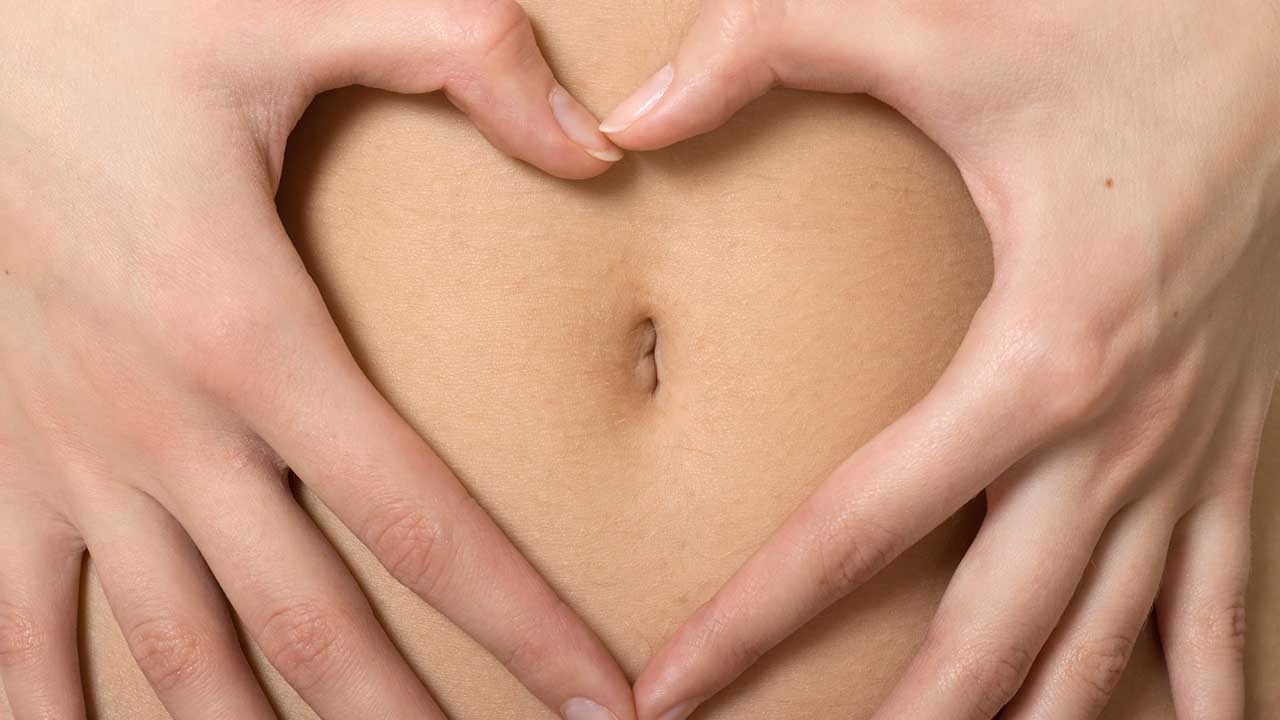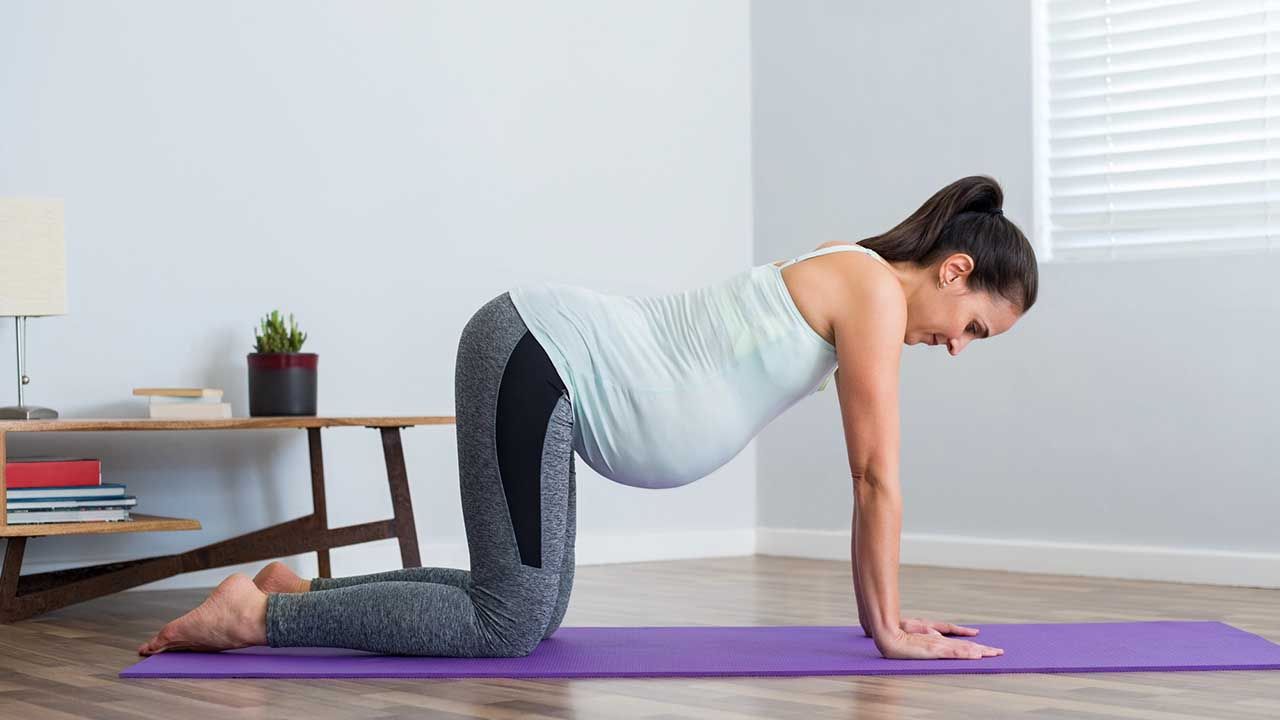What is Polycystic Ovary Syndrome? (PCOS)

Polycystic Ovary Syndrome, also known as PCOS or Stein-Leventhal Syndrome, is one of the most common hormonal conditions in the world and one of the leading causes of infertility - which makes it surprising just how misunderstood it still is. Despite as many as 1 in 10 women having this syndrome, it's still unknown exactly what causes it, getting diagnosed in the first place can be difficult, and each woman with PCOS needs an individualised treatment plan as symptoms can differ from one person to the next.
What is PCOS?
In many women with PCOS, a hormonal imbalance means egg follicles don’t pass into the fallopian tube as normal during ovulation. Instead, they remain in the ovary as benign cysts. While a few cysts like this are not necessarily abnormal, PCOS sufferers tend to have 10 or more (showing up on ultrasound scans like a ring of pearl-like circles) which can lead to greater hormonal imbalance. BUT... Not all women with the syndrome will have ovarian cysts and not all women with ovarian cysts will have PCOS, so even the name itself can cause confusion.
Generally speaking, there are two 'types' of PCOS. One results in a heavy build where muscle cells are resistant to insulin. These women are typically more prone to increased body fat, anxiety, sleep irregularities, fatigue and inflammation associated with higher cortisol levels. A lower carbohydrate diet may help with weight management and symptom alleviation.
The other PCOS type results in a leaner build where the fat cells are resistant to insulin. These women are typically more prone to low cortisol, sleep irregularities, low blood sugar, fatigue, and although they may not appear as though they have much weight to lose they may experience difficulty shifting even 1-2kg if they pursue it. A lower carbohydrate diet will likely still help, but for these women, if their carb intake gets too low it will likely exacerbate the fatigue and low blood sugar.
So from this, you can understand that even physical appearance can't obviously determine whether we have it or not, and you can see why different women with PCOS need a different treatment gameplan.
Symptoms of PCOS
Some doctors go by a checklist of symptoms to determine a PCOS diagnosis, however, the problem is that symptoms will be different for each individual which makes it easy to misdiagnose.
Several or more of the following may be experienced:
- Male-pattern hair loss or hirsutism (excess hair growth on the face and body)
- Irregular or absent periods, infertility
- Ovarian cysts and/or enlarged ovaries
- Weight gain, difficulty losing weight, or obesity – especially around the mid-section
- Acne
- Fatigue
- Raised cholesterol
- Thyroid issues
- Raised blood pressure
- A range of hormonal imbalances (some or many) including high testosterone levels or other androgens, elevated luteinising hormone, insulin resistance, high cortisol levels, low estrogen or progesterone, among others.
These symptoms can vary in severity and some women may only have one or two of them, while others may experience all of the above. For example, Grace, Grit & Gratitude founder Ange Noy has PCOS and when she has a flare up, she experiences hirsutism, ovarian cysts, difficulty losing weight, fatigue, high cholesterol and high testosterone levels. She has never had irregular periods (which is often one of the more common PCOS symptoms) and had no trouble conceiving her two children.
Because of this variation in symptoms, it’s common for some women with PCOS to end up visiting multiple doctors before a diagnosis is finally reached
What to do about PCOS
Although PCOS is typically seen as being incurable, the symptoms are generally treatable and for many women it's done via healthier lifestyle changes with an holistic approach (alongside potentially requiring medication). While it's thought there may be a genetic component to having PCOS which is something we can't change, lifestyle changes to your health, fitness and wellbeing are things that you can control. There are women who find that once they get most of their symptoms sorted, their body 'regulates' and they end up with no symptoms at all. Grace, Grit & Gratitude founder Ange Noy has experienced this and been able to come off her medications, so it is potentially possible.
However, that said, it's important to remember that whatever lifestyle changes you make, they must be maintainable in the long term so you can continue to do them consistently. This is part of the reason we don't advocate fast fix fitness and nutrition options at Grace, Grit & Gratitude. Weight gain, stress or going off medications are among the events that could trigger PCOS symptoms to start up again.
Stress can also include over-exercising, so it's important to have a balanced approach to your fitness routine.
Think you have PCOS?
If you think you may have PCOS, ask your doctor to confirm a diagnosis. They will likely do this through blood tests, an ultrasound and your medical history. As there are so many symptoms, it’s possible to mistake PCOS for something else so don’t assume!
If anyone tells you to ‘just lose weight’ and doesn’t point you in the right direction to learn how, find another doctor for a second opinion. We recommend that you seek help from an endocrinologist, dietician and/or naturopath as well.
If you are diagnosed, do some of your own research to understand PCOS better and get the support of your friends, family and if possible, professionals such as a personal trainer or nutritionist. Due to the nature of the symptoms, PCOS may lead to depression so it’s important to surround yourself with people who are positive and make you feel good about yourself.
As previously mentioned, the aspects of self-treatment for PCOS are typically done through healthier lifestyle changes - this may be through nutrition, fitness, or even potentially a wellbeing focus and stress management - so it's important to recognise that quick fix diets and short-term training programmes will likely not be a long term solution.
REFERENCES
- PCOS Forum: Research in Polycystic Ovary Syndrome Today and Tomorrow (https://www.ncbi.nlm.nih.gov/pmc/articles/PMC3742326)
- Mayo Clinic. Polycystic Ovary Syndrome (https://www.mayoclinic.org/diseases-conditions/pcos/symptoms-causes/syc-20353439)
Image / DepositPhotos









